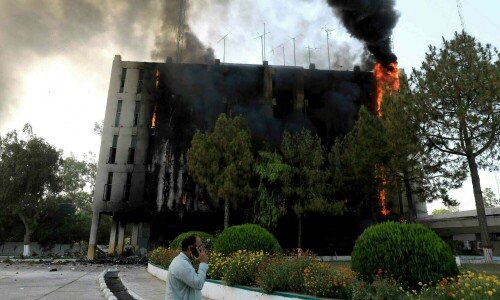The following is narrated by Asma Shafi to Natasha Zai of Justice Project Pakistan about her brother Ali (not his real name), who was entrapped by overseas employment promoters in Pakistan, luring him with the hope of a job in Saudi Arabia and forced him to smuggle drugs.
Ali was sentenced to death in the kingdom. To date, his family has not received official notification of his imprisonment and criminal case, when or if he will be acquitted, pardoned, extradited or how they might be able to vindicate him of any allegations.
Three days ago, I dreamt of my brother.
At long last, he had come back home. In my sleep, I felt all our misery disappear. Our problems were over, our suffering had ended. For those few minutes, I felt happy.
When the sun rose, my mother told me she also had the same dream. She saw her son walking in the door.
But the joy we both felt was fleeting. In the starkness of daylight, we once again faced up to the harsh reality that Ali, my brother, was in a jail in Saudi Arabia, awaiting execution.
Suffering is not new to us. My brother and I had a terrible childhood. After my father’s death, we were shuttled from one relative’s house to another, waiting for someone to give us a permanent home.
Related: Pakistani citizens, including children, on death row in Saudi Arabia and Iran
I was much younger than my brother, and I would have been far more affected by our circumstances had it not been for Ali.
He protected me and shielded me from the worst. I wish I could do the same for him today, but I am helpless.
Ali was about 22 years old when he left for Saudia. Before that, he had been working in a rice mill.
My brother was a simple boy. In school he was teased incessantly. People used to call him bhola [naive].
When he met a few people who told him they were Overseas Employment Promoters, he asked them to find him a job.
Over the next few months, these agents forged a close relationship with Ali. He came to trust them. Finally, they told him that his ticket was ready and he would have to travel to Islamabad.
From the capital, Ali was taken to Mardan, where, to his utter shock, he was locked up in a room. Those few hours were spent in confusion and growing fear.
Finally, some men entered the room, bearing a gun. Ali was forced to choose between swallowing heroin-filled capsules or face death. Then he was sent off on a plane to Jeddah.
As soon as the plane landed, my brother was arrested.
Back home, we knew something was wrong. Ali had just disappeared, and there was no way of finding out what had happened to him.
Explore: Families mourn drug mules beheaded in Saudi Arabia
After a few months spent in agony, we came to know what had happened when he called us from jail. There was nothing we could do to help him.
We hoped that he would be helped by the Pakistan embassy in Saudi Arabia, but to no avail. He has been sentenced to death. And so have we, who dread the dawn of every new day because it might be the last for him.
Ali has a daughter who was five months old when he boarded that plane, looking to secure a brighter future for her. She is now in grade four.
Some days she comes back from school in tears. Even though we have told her why Ali can’t be here with her, she still misses him when she sees other children going home with their fathers.
And so our household now is comprised of just three women and a child.
My mother is paralysed and bedridden. She prays five times a day, asking God to turn back the clock. When she talks to Ali on the phone, she asks the same question: "When are you coming home?"
We want him back not just to complete our family. I am the only earning hand right now. We can barely make ends meet. If my brother were to come back, maybe our luck would change.
Read next: What my Pakistani inmate Zulfiqar Ali taught me while on death row in Indonesia
From prison, Ali tells us harrowing tales of what goes on in foreign jails. His fellow inmates from Pakistan do not get any help from the Pakistani government. In court, everyone talks in Arabic and Pakistanis do not understand what is being said or done.
Many prisoners have unknowingly signed confessions. Jails are overcrowded and prisoners suffer from skin diseases.
Sentences can be changed at whim, and so, many prisoners who thought they had a life sentence were moved to death row without any explanation.
My brother lives in fear that one day he will be executed without notice and will not even get a chance to say goodbye to us.
At the end of every day, I gladly close my eyes. When I sleep, I am not helpless anymore. I leave behind this ruthless system, this uncaring government and this societal apathy.
I rise beyond the reach of financial worries, debilitating sadness and constant fears. When I sleep, I feel optimistic.
For those few hours, there exists the possibility of seeing Ali, even if in a dream.
Are you a researcher or activist working on human rights? Share your insights with us at blog@dawn.com
















































